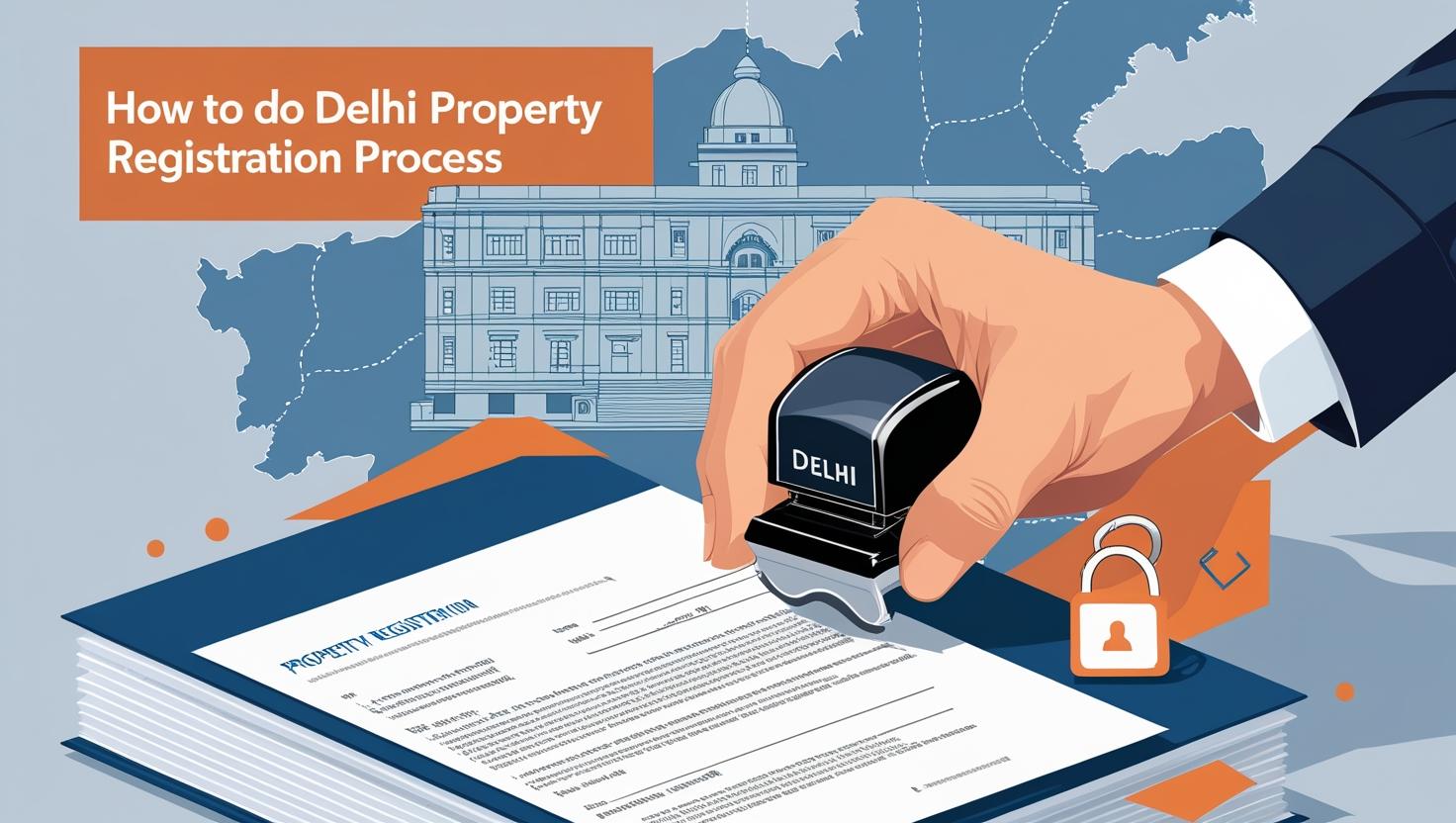Registering property in Delhi has become more streamlined and user-friendly, thanks to recent reforms aimed at enhancing transparency and efficiency. Understanding the updated registration process is crucial for anyone looking to buy or sell property in the capital. This guide provides a step-by-step walkthrough of the current property registration procedures in Delhi, ensuring you’re well-prepared for a smooth transaction.
1. Introduction to Property Registration in Delhi
Property registration is a legal process that formalizes the transfer of property ownership from one party to another. In Delhi, this process is governed by the Registration Act of 1908, which mandates the registration of various property-related documents to ensure legal validity and public record.
2. Recent Reforms: ‘Anywhere Registration’ Policy
In October 2024, the Delhi government introduced the ‘Anywhere Registration’ policy to simplify the property registration process. This policy allows individuals to register their property at any of the 22 sub-registrar offices across Delhi, irrespective of the property’s location. Previously, registrants were confined to specific offices based on jurisdiction, leading to congestion and delays at certain locations. The new policy aims to distribute the workload evenly and reduce wait times.
Source : The Times of India
3. Implementation of the National Generic Document Registration System (NGDRS)
To further enhance efficiency, Delhi has adopted the National Generic Document Registration System (NGDRS). Developed by the Government of India, NGDRS standardizes and digitizes the property registration process, reducing paperwork and minimizing errors. As of August 2024, over 2.31 lakh properties in Delhi have been registered using NGDRS, reflecting its growing adoption.
Source : India Today
4. Step-by-Step Guide for Delhi Property Registration Process
a. Preparation of Documents
Before initiating the registration process, ensure you have all necessary documents, including:
- Sale Deed: The primary document evidencing the sale and transfer of property.
- No Objection Certificate (NOC): Required from relevant authorities, especially for properties in specific zones or those with certain restrictions.
- Identity Proof: Valid ID proofs of both buyer and seller (e.g., Aadhaar card, passport).
- PAN Card: Mandatory for transactions exceeding a certain value.
- Photographs: Passport-sized photographs of both parties.
b. Online Appointment Booking
With the ‘Anywhere Registration’ policy in place, you can choose any sub-registrar office based on convenience. Appointments can be booked online through the Delhi government’s official portal. This system allows you to select a date and time slot, reducing the need for prolonged waiting periods.
Source : ETRealty.com
c. Document Upload and Fee Payment
Utilizing the NGDRS platform, upload all requisite documents, including the sale deed, NOC, and identity proofs. The system will calculate the applicable stamp duty and registration fees based on the property’s value and location. Payments can be made online, offering a seamless and transparent transaction process.
d. Visit to Sub-Registrar Office
On the scheduled appointment date, both the buyer and seller must visit the chosen sub-registrar office. Carry all original documents for verification. The sub-registrar will verify the details, witness the signing of documents, and capture photographs and fingerprints to authenticate the parties involved.
e. Issuance of Registered Documents
After successful verification and completion of formalities, the sub-registrar will register the property in the official records. A certified copy of the registered document will be provided to the buyer, serving as legal proof of ownership.
5. Benefits of the Reformed Registration Process
- Flexibility: The ‘Anywhere Registration’ policy offers the freedom to choose any sub-registrar office, making the process more convenient.
- Efficiency: Online appointment booking and document uploads streamline the process, reducing physical visits and wait times.
- Transparency: Digital platforms like NGDRS minimize the involvement of intermediaries, curbing potential malpractices.
- Uniformity: Standardized procedures across all sub-registrar offices ensure consistency in service delivery.
6. Key Considerations
- Timely Appointments: Given the flexibility, popular sub-registrar offices might still experience higher footfalls. Booking appointments well in advance is advisable.
- Document Accuracy: Ensure all documents are accurate and complete to prevent delays during verification.
- Fee Structure: Stay informed about the current stamp duty and registration fee rates, as they may vary based on property specifics.
7. Conclusion
The recent reforms in Delhi’s property registration process, notably the ‘Anywhere Registration’ policy and the adoption of NGDRS, have significantly improved the ease of doing property transactions. By embracing these changes and following the outlined steps diligently, individuals can ensure a hassle-free and legally sound property registration experience in Delhi.

